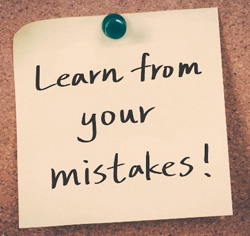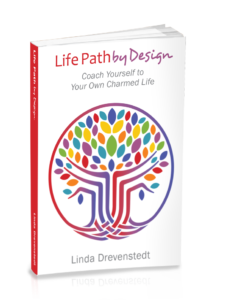 Setting and keeping boundaries are foundations for healthy relationships, healthy self-esteem and worthiness. Healthy self-esteem allows you to take care of yourself, your values and needs in a healthy relationship. The funny thing is that life constantly presents you with the balancing act between OTHERS’ needs, wants and desires and YOUR own needs, wants and desires.
Setting and keeping boundaries are foundations for healthy relationships, healthy self-esteem and worthiness. Healthy self-esteem allows you to take care of yourself, your values and needs in a healthy relationship. The funny thing is that life constantly presents you with the balancing act between OTHERS’ needs, wants and desires and YOUR own needs, wants and desires.
Let’s dispel the fairy tale falsehood that what you do or say or don’t do or say is the ultimate cause of another’s happiness. You take on the unrealistic expectation that your job is to make others “happy.” You want your children, your spouse and your co-workers to be happy, especially happy with you. Au contraire. “Happy” is such an individual perspective, there is no way you can be responsible for another’s person’s happiness. Let me repeat this:
You are NOT responsible
for another person’s happiness.
 Let’s talk about your children, (the ones that are your dependents – boundaries for adult children will be another installment), here in Part One. A child’s happiness is a fleeting thing from the toddler’s temper tantrums to those unpredictable teen moods. As a parent, your job is not your child’s happiness. A child’s happiness meter can be a black hole of emotional ups and downs. Some are meant to play to your vulnerable side. If a child learns that you hold their happiness above and beyond all else, they will learn to play you. They learn that if they protest about your boundary or the restriction you impose because of their inappropriate behavior, you will give in to make them happy. They play you. They learn manipulative behavior that they take into their adult life.
Let’s talk about your children, (the ones that are your dependents – boundaries for adult children will be another installment), here in Part One. A child’s happiness is a fleeting thing from the toddler’s temper tantrums to those unpredictable teen moods. As a parent, your job is not your child’s happiness. A child’s happiness meter can be a black hole of emotional ups and downs. Some are meant to play to your vulnerable side. If a child learns that you hold their happiness above and beyond all else, they will learn to play you. They learn that if they protest about your boundary or the restriction you impose because of their inappropriate behavior, you will give in to make them happy. They play you. They learn manipulative behavior that they take into their adult life.
Children are smart and wily. You as the adult – the parent – must grow your own healthy self-esteem and worthiness so that you can survive your child’s temporary disdain. Children “huff and puff” hoping you will give in. When you let the boundary go, you reduce the restriction to make them “happy”, you both lose. The child loses because they go out into the world acting as if boundaries set by others have little or no meaning. They defy their teachers, giving excuses instead of the work they should hand in. They take advantage of their friends, who may have said “No.” Since they never learned a REAL “NO” from you, the parent, they do not hear “NO” from others. They push the window of acceptable behavior.
While they are children, your job is to keep them safe, secure and learning boundaries as they grow. Your job is to teach them acceptable behaviors and that their actions have consequences. When you let go of rescuing and always trying to make them happy, they learn that they ARE NOT the center of the world. They learn to take responsibility for their actions. When a child being “happy” is more important than a child learning to become a mature person as they grow, the child will have a hard time in the adult world. Think about some of your co-workers who overstep boundaries.
Life is about lessons. There is an experience or event that leads to a decision, behavior or action. Decisions, actions or even inaction, have cause-and-effect consequences. A parent’s role is to allow the life lessons to be fully experienced. Now, I am not talking about letting your two-year-old child run in the street to learn about cars. But I am talking about allowing your children to experience the consequences of their behavior. Who but you can teach them that inappropriate behavior has consequences?
 Will there be times when you are miserable because they are miserable with a restriction? YES. Will there be times you want to take the easy way out and let them have their way? YES. Will they pout and huff and puff at the restriction? YES. Your job is to set the boundaries and use appropriate consequences. Their job is to understand that if they break the boundary, there is a consequence. I am not talking about unrealistic strictness. Fair boundaries are important for children to learn. This means that if the boundary is no TV, video games, iPad, or friends over until homework is done, then that is the boundary.
Will there be times when you are miserable because they are miserable with a restriction? YES. Will there be times you want to take the easy way out and let them have their way? YES. Will they pout and huff and puff at the restriction? YES. Your job is to set the boundaries and use appropriate consequences. Their job is to understand that if they break the boundary, there is a consequence. I am not talking about unrealistic strictness. Fair boundaries are important for children to learn. This means that if the boundary is no TV, video games, iPad, or friends over until homework is done, then that is the boundary.
When you tie your own happiness to your child’s happiness, you will be miserable. We cannot ever MAKE someone happy. Children need to grow, mature and learn about life. Their learning needs to include getting along in a world where everyone has different needs, wants and desires. They need to learn that their immediate happiness is not the top priority of other people. Your job is to teach them through your actions, how the world really works.
Detach from the thought that your child has to be happy all the time for you to be OK. Most people, including your children will have periods of stress, frustration, disappointment, and unhappiness. If you don’t want them to experience these real-life emotions because you want to protect them, life will be infinitely tough for them as adults.
Does it hurt to sit and watch them make what you consider to be a bad decision? YES. Unless it is illegal or life-threatening, let them make some poor decisions. If you think back, some of your most profound learning came from mistakes or poor decisions.
 Allow them to learn about consequences, but only if your goal for your children is to become responsible adults, making it on their own and taking care of their business. The small goofy, poor decisions are necessary for maturation. Will they get hurt? YES. Will they have a broken heart, a lost friendship, a broken toy, a skinned knee? YES. And they will learn. Not letting them experience life’s bumps, leads to a man-child or a woman-child who looks to others and possibly to addictions for fulfillment. They never grow up because they were never allowed to learn from life. Your protections and rescues do not serve them or you.
Allow them to learn about consequences, but only if your goal for your children is to become responsible adults, making it on their own and taking care of their business. The small goofy, poor decisions are necessary for maturation. Will they get hurt? YES. Will they have a broken heart, a lost friendship, a broken toy, a skinned knee? YES. And they will learn. Not letting them experience life’s bumps, leads to a man-child or a woman-child who looks to others and possibly to addictions for fulfillment. They never grow up because they were never allowed to learn from life. Your protections and rescues do not serve them or you.
Boundaries are a cornerstone of good self-care. Look for Part 2 and Part 3 of this series, “Set Boundaries for Healthy Self-Esteem” in upcoming blog posts. If you have not already, sign up for blog post email notifications here: Linda’s Blog Updates Signup. If you need a listening ear and any internal dialogue clean-up to accomplish this, get in touch with me for a Complimentary Discovery call. 800.242.7648.





Linda is such a great mentor, coach and inspiration in my life!!!!